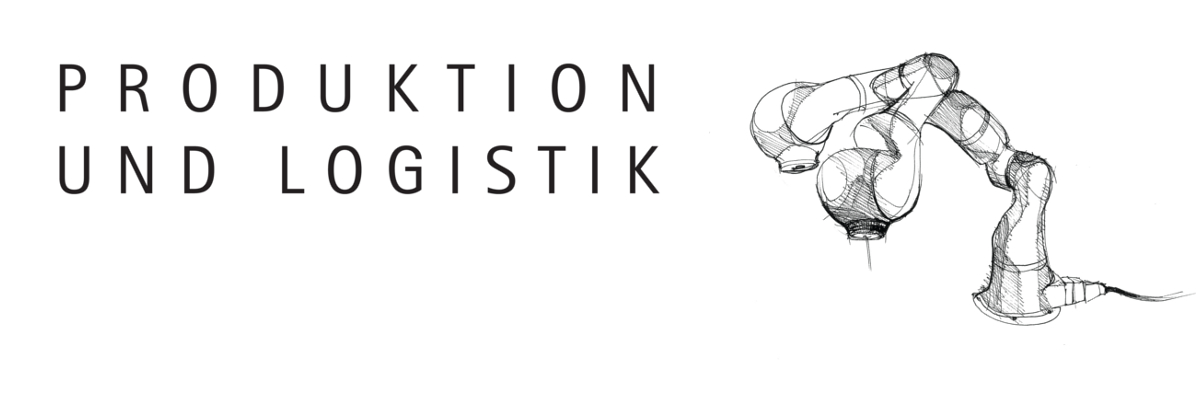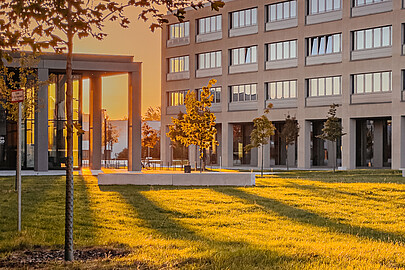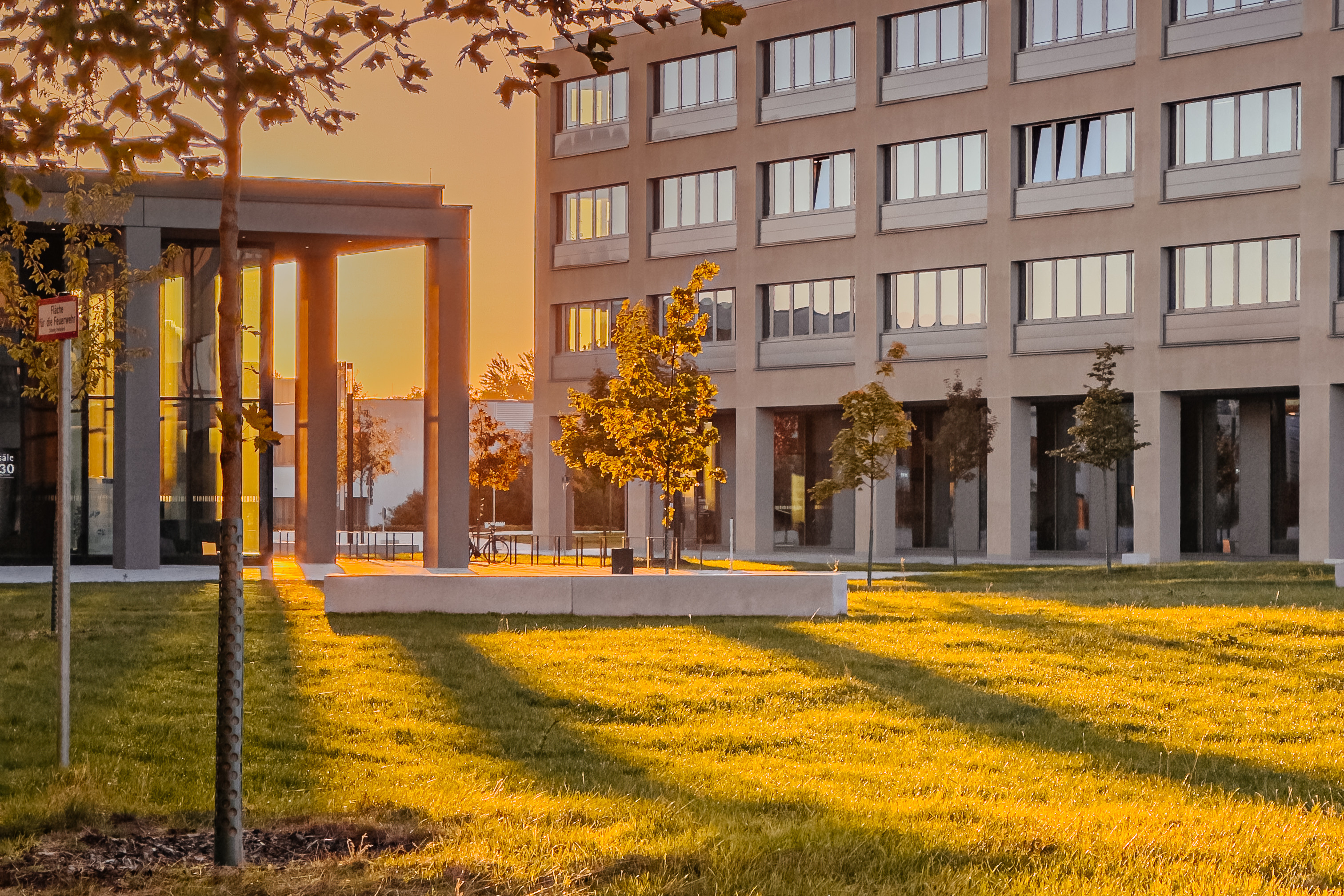As a rule, the course of study takes 4 semesters. After passing the master thesis you will receive the degree Master of Science.
What can you expect during your studies?
The Master's degree in Production and Logistics is characterized by a great freedom of choice. In the first semester only the compulsory subject Production Management and Logistics is prescribed. In addition, you will deepen your specialist knowledge in the two elective fields of competence Production Engineering and Technical Logistics and Supply Chain Management and take subject-specific courses. If you have already completed the twelve-week specialist internship in your bachelor's degree, further options in the competence fields will open up for you. If you have not yet completed a specialist internship, you must have done so by the time you register for your Master's thesis at the latest. The Studium Generale also offers the possibility to choose a course from the entire range of courses offered by the university. Accompanying master's laboratories, subject-related tutorials and practice-oriented excursions complete your studies. In the third semester you will write a student research project and immediately prepare for your master's thesis, which you will write in the fourth semester.
Detailed information on the course contents can be found in the module plan and in the module and course catalogues.
Qualification goals
-
Tasks and requirements in production and logistics
Production and Logistics is concerned with technical processes and methods for the production and distribution of technical goods as well as with the planning, organisation and optimisation of the processes and resource flows required for this in manufacturing companies. Special consideration is given to the mechanical engineering prerequisites and possibilities for realizing detailed properties of these artifacts in the course of the manufacturing process and the criteria-led (effective / efficient / changeable / economic / sustainable) design of the underlying processes and systems. In doing so, it is essential to meet the requirements of flexibility, automation and intelligent self-control.
-
The main qualification goals of the Master's degree in Production and Logistics are ...
- the broadening and deepening of technical knowledge in the sub-disciplines of production and logistics by refining models and processes with regard to the specific requirements of application areas
- the ability to design production machines, to interpret and design production processes and production techniques
- the ability to theoretically model production systems and logistic processes and to systematically design manufacturing companies and factories
- the ability to develop integrated production systems and techniques, integrating research results from other disciplines
- the ability to carry out independent scientific work (design and execution of a research plan, use of adequate scientific methods, presentation and critical evaluation of research results)
-
Graduates are able to ...
- theoretically model and assess internal and cross-company interdependencies
- further develop manufacturing technologies on the basis of research and to adapt scientific engineering findings for problem solutions
- analyse and design production companies with regard to change processes and to manage adjustments to technical-organisational change
- mediate between business and technical requirements and estimate organisational and management principles
- deal with complex problems in a systematic and structured way and to think abstractly, creatively, innovatively and networked in the process of finding solutions
- lead technical projects and take on management tasks, to organise and coordinate work contexts in a target-oriented manner and to communicate technical issues and work results in an address-oriented way
- work on current issues in research and development based on scientific standards
Application and Admission
Areas of activity
Graduates of the master's degree programme in Production and Logistics are more highly qualified than bachelor's degree graduates, can work in a more research-oriented and complex manner and are therefore more versatile. They are mainly employed in industry in the fields of corporate management, research and development, quality management as well as in production, materials management and logistics.
You can find concrete job opportunities and career examples under Experience Reports.



Module plan and catalogues, tutorials, labs
Exam regulations
Modules from the master's degree programme in Production and Logistics have a different name in Stud.IP than in the course and module catalogue.
Module name according to module catalogue and curriculum
- Operations Management and Research I: Operations Research (WS)
- Performance Analysis I: Stochastic Models in Production an Logistics (SS)
- Operations Management and Research II: Modeling and solving business optimization problems with GAMS (WS)
- Performance Analysis II: Manufacturing Systems Modeling and Analysis (WS)
- Operations Management and Research III: Logistics (SS)
- Operations Management and Research IV: Design of industrial production processes (WS)
Naming in Stud.IP
- Operations Research (Lecture) and Exercise in Operations Research (Tutorial)
- Stochastic Models in Production and Logistics (Lecture) and Exercise in Stochastic Models in Production and Logistics (Tutorial)
- Modellierung und Lösung betriebswirtschaftlicher Optimierungsprobleme mit GAMS (Lecture) und Übung zu Modellierung und Lösung betriebswirtschaftlicher Optimierungsprobleme mit GAMS (Tutorial)
- Manufacturing Systems Modeling and Analysis (Lecture) and Exercises for Manufacturing Systems Modeling and Analysis (Tutorial)
- Logistik (Lecture)
- Gestaltung industrieller Produktionsprozesse (Lecture)
Contact

 ©
Manmeet Singh
©
Manmeet Singh

 ©
Manmeet Singh
©
Manmeet Singh







